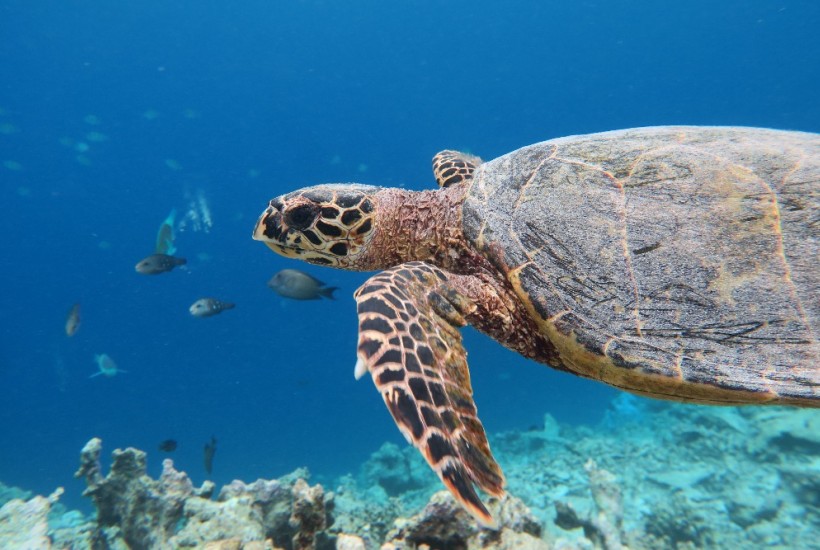The team at Banyan Tree Marine Lab now track sea turtles residing and frequenting on house reefs of both Banyan Tree Vabbinfaru and Angsana Ihuru.
In January 2019 the resort launched the Turtle ID Program, tracking populations of sea turtles that either frequent or reside on the house reefs of the two luxury resorts and the nearby reefs, with the aim of monitoring the populations of these highly-endangered animals.
The Marine Lab Team uses technical software to identify the individual face pattern on the left side of the turtle's head. Once the pattern has been mapped out, it is stored in a database and these patterns make it easy to compare and identify new turtles.
The resort encourages guests to contribute towards the initiative, by submitting images for turtles they encounter when snorkeling out on the reefs. The critically endangered Hawksbill Turtle is frequently spotted on the reefs, with high number of new turtles being identified. Each individual is names, so the team can more easily identify them while guiding snorkels.
The Banyan Tree Marine Lab actively engages guests and associates with ongoing Marine Conservation activities and initiatives, such as Marine Talks given on topics that include turtle and shark conservation, effective reef restoration and monitoring, and a novel long-term shark monitoring program, which aims to critically assess the effectiveness of the nationwide shark-fishing ban, introduced across the Maldives in 2010. The Turtle ID Program, started 6 months ago, is just one of man new initiatives being implemented by the Banyan Tree Marine Lab and its Sustainability team. Another unique initiative involves the up cycling of abandoned drift-Ghost Nets, a major threat to sea turtles, in to colorful bracelets; raising awareness about these dangers to marine animals, as well as the overall threat of marine plastic pollution to animal biodiversity and the health of our natural environments, as well as our own health.


